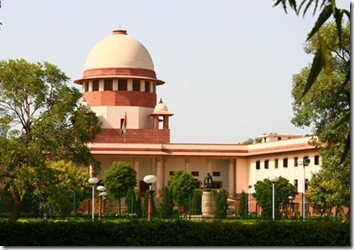
The board of examiners through registrar and secretary Sunil Thomas notified on 16 April that, pending an amendment to the AoR examination regulations, it followed the directions of the Supreme Court’s 12 October 2011 order in Vijay Dhanji Chaudary V Suhas Jayant Natwadkar.
Paper III in the syllabus until last year carried 50 marks for elementary principles of bookkeeping and 50 marks for the section on legal ethics.
After the new notification of 16 April, Paper III will consist entirely of a legal ethics section and will carry 100 marks.
Candidates re-appearing for paper III this year, will be attempting this changed version of the paper.
The section on bookkeeping faced criticism from the Supreme Court Bar Association (SCBA) and the Supreme Court Advocates on Record Association (AORA) that were asked by the bench in Vijay Dhanji Chaudhary for recommendations to ensure an increase in the number of AoR exam-takers.
The SCBA and the AORA had recommended an amendment to the AoR exam regulations, deleting the section on bookkeeping, which according to them had been rendered redundant five decades ago because of the availability of appropriate computer software and the ability of AoRs to engage accountants.
They had also noted that the section on bookkeeping acted as a particular deterrent against taking the exam since many candidates failed the section.
Earlier this year, Mohit Abraham, who had scored the topping marks in last year’s exam, told Legally India about his strategy for taking the exam and the rationale behind the designation.
threads most popular
thread most upvoted
comment newest
first oldest
first
But if someone hands down literary criticism and take thes name of the New Yorker, even in a casual comment, at least they should get their own house in order.
hahaha! Shakespeare, you are incredible!! "own house in order" - you evidently take this way too seriously... hahahaha.
facepalm
It's a typo.
threads most popular
thread most upvoted
comment newest
first oldest
first